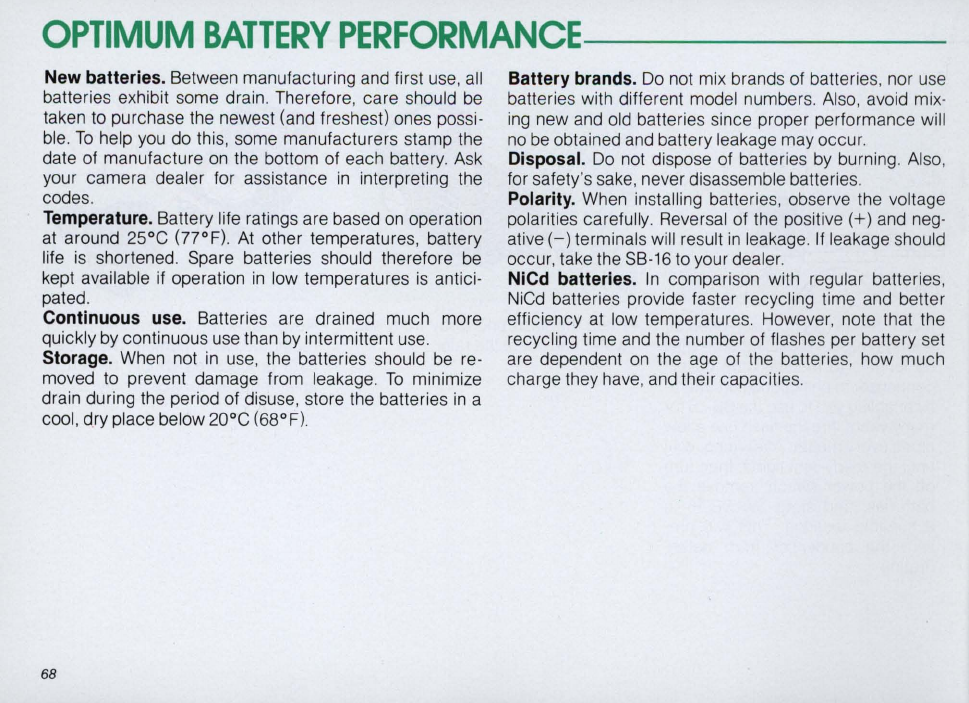
OPTIMUM
BATTERY
PERFORMANCE-------
New batteries. Between manufacturing and first use,
all
batteries exhibit some drain. Therefore, care should
be
taken
to
purchase the newest (and freshest) ones possi-
ble.
To
help you do this, some manufacturers stamp the
date of manufacture
on
the bottom of each battery. Ask
your camera dealer for assistance
in
interpreting the
codes.
Temperature. Battery life ratings are based
on
operation
at
around 25°C
(7r
F),
At
other temperatures, battery
life
is
shortened. Spare batteries should therefore
be
kept available
if
operation
in
low temperatures
is
antici-
pated.
Continuous use. Batteries are drained much more
quickly
by
continuous use than by intermittent use.
Storage. When not
in
use, the batteries should
be
re-
moved
to
prevent damage from leakage.
To
minimize
drain during the period of disuse, store the batteries
in
a
cool, dry place below 20°C (68°F),
68
Battery brands.
Do
not mix brands of batteries, nor use
batteries with different model numbers. Also, avoid mix-
ing
new
and
old batteries since proper performance will
no
be
obtained and battery leakage may occur.
Disposal.
Do
not dispose of batteries
by
burning. Also,
for safety's sake, never disassemble batteries.
Polarity. When installing batteries, observe the voltage
polarities carefully. Reversal of the positive
(+) and neg-
ative
(-)
terminals will result
in
leakage. If leakage should
occur, take the
SB-16
to
your dealer.
NiCd batteries.
In
comparison with regular batteries,
NiCd
batteries provide faster recycling time and better
efficiency at low temperatures. However, note that the
recycling time and the number of flashes per battery set
are dependent
on
the age of the batteries, how much
charge they
have
, and their capacities.


















